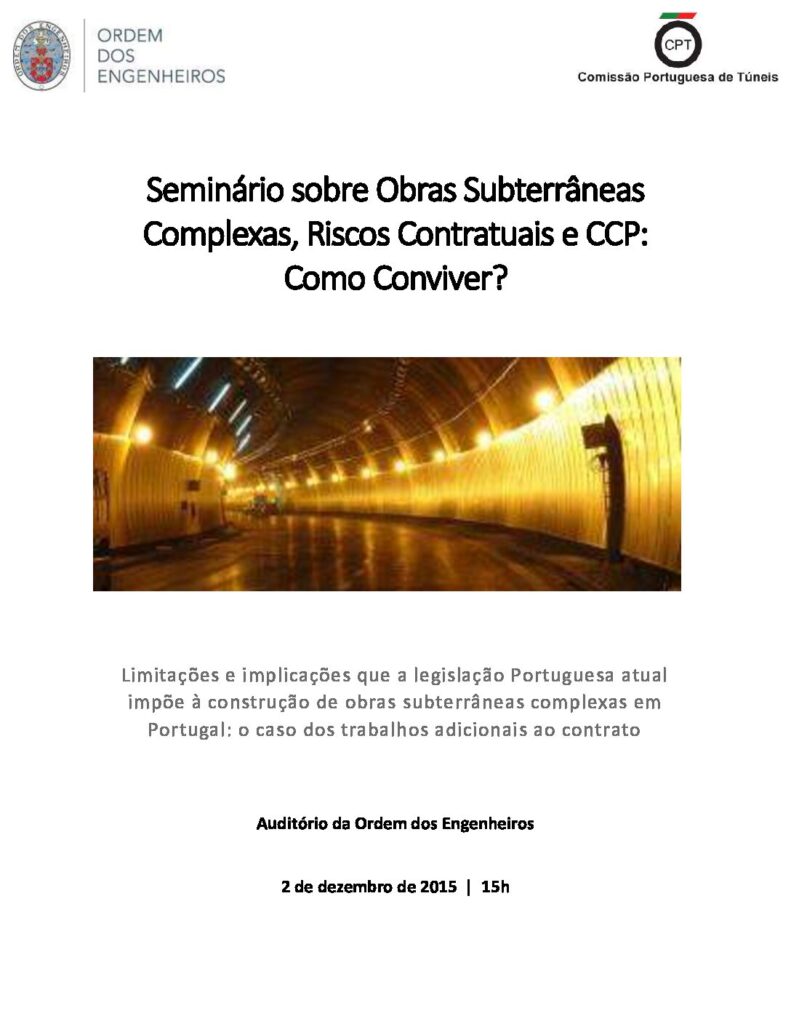The Portuguese Commission of Tunnels and Underground Space organized the seminar “Complex Underground Works, Contractual Risks and PCC: how to strike a balance?” in partnership with the Southern Region Department of the Portuguese Order of Engineers, on December 2, 2015 at 3 p.m. (Auditorium of the Southern Region Department of the Portuguese Order of Engineers), including the following subject:
“Limitations and implications that current Portuguese legislation imposes on the construction of complex underground works in Portugal: the case of additional works to the contract”.
The specificities of this type of construction, quite different from any other type of construction, are well known because the properties of the building material – the ground – cannot be accurately determined in advance. Unpredictable geological conditions, dependence on the means and the inevitable risks of construction are inseparable factors from underground construction. The interest of the event was associated with its opportunity, as the deadline for transposition into the legal framework of the European Union Directives 23, 24 and 25 was close. CPT’s Working Group 2 “Engineering and Legislation: Contractual Practices” has been developing activities in this domain, aiming at contributing to the public debate of this transposition.
The program sought to cover the problem of public contracting in underground works, with special emphasis on tunnels, from different relevant points of view. The program began with an introduction to the issue of the implications of geological-geotechnical uncertainty in technical and contractual management, regarding the Public Contracts Code. This was followed by a presentation by the auditing entity (the Court of Auditors), the legislative advisory body (the Institute of Public Markets, Real Estate and Construction) and the state technical advisory entity (the National Laboratory of Civil Engineering) and by a theoretical framework concerning the Contracting Law.
The detailed program can be found at www.ordemengenheiros.pt.
The corresponding presentations can be downloaded from the link.
